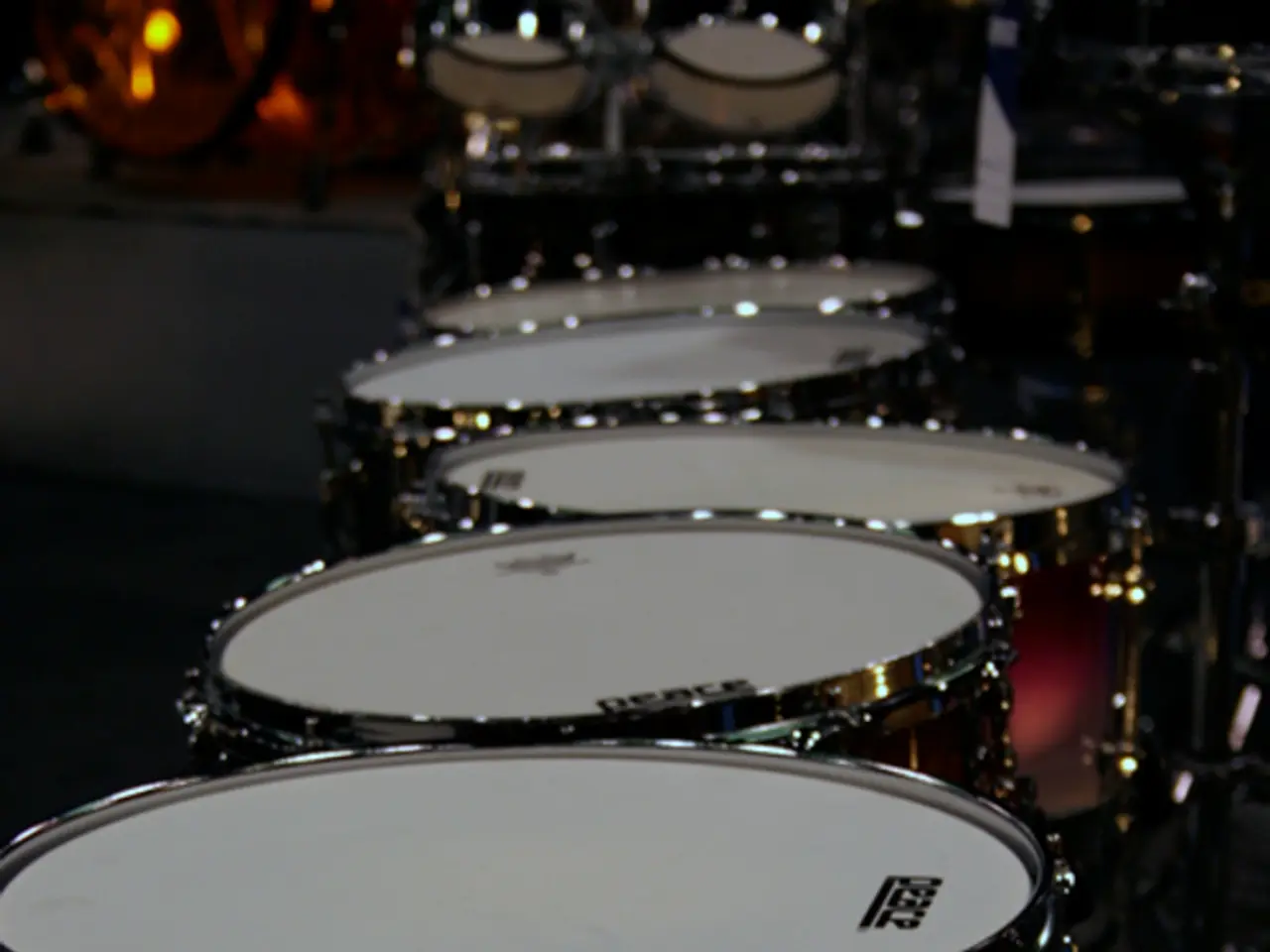Cannabigerol (CBG) Highlights: A Potential Cannabinoid Offering Hope for Depression Treatment and Beyond
In the realm of mental health research, a promising candidate is emerging: Cannabigerol (CBG), a lesser-known cannabinoid found in cannabis plants. While still in its early stages, current research suggests that CBG could potentially offer a new approach to treating depression.
The mechanism behind CBG's potential antidepressant effects is rooted in its ability to block serotonin receptors, leading to increased serotonin concentration in the brain. This increase is crucial for mood regulation and could contribute to alleviating depression symptoms. Furthermore, CBG influences stress hormones like epinephrine and norepinephrine, helping to calm the nervous system [2].
Unlike CBD, which is widely recognized for reducing anxiety and depression by modulating neurotransmitters and promoting calmness, CBG's unique interaction with a broader range of receptors offers different or complementary therapeutic effects [1]. This distinct pharmacological profile makes CBG a promising candidate for future research, especially targeting mood disorders.
Preliminary studies and anecdotal evidence indicate CBG's potential usefulness, but more rigorous clinical trials are essential to substantiate these claims and determine effective dosing and safety [4]. As of now, there is no FDA approval for CBG as a depression treatment.
CBG's broader therapeutic promise extends beyond depression. It is under investigation for various conditions such as inflammatory diseases, neurodegenerative disorders, and seizure control, largely due to its anti-inflammatory and neuroprotective properties [1][2][3][5].
For those considering CBG for depression treatment, it's essential to consult healthcare professionals and consider the preliminary nature of the current evidence. A typical starting dose might be 10-25mg per day, but this can vary based on individual factors [6]. More research is needed to fully understand the effects and optimal use of CBG.
The future of CBG research and development looks promising, with growing interest in developing CBG-based pharmaceuticals and targeted CBG formulations for specific health conditions [7]. Several ongoing clinical trials and studies are investigating the potential therapeutic applications of CBG for conditions including depression, anxiety, and neurodegenerative disorders [8].
It's important to note that the legal status of CBG varies by country and region, but CBG derived from hemp (cannabis plants with less than 0.3% THC) is legal in many places [9]. CBG is available in various forms, including oils, capsules, and topicals.
For those interested in exploring other cannabinoid options, guides on CBD for Anxiety and Stress and Best Hemp Flower for Depression offer valuable information [10]. Always consult with healthcare professionals before incorporating CBG or any new supplement into your treatment regimen, especially if dealing with depression or other mental health conditions.
In conclusion, while the research on CBG as a treatment for depression is still in its early stages, the potential benefits are promising. Its distinct pharmacological profile compared to better-studied cannabinoids like CBD makes it a compelling candidate for future research, especially targeting mood disorders. Ongoing and future clinical studies will be crucial to confirm efficacy and safety before CBG can be widely recommended for depression treatment.
References: [1] Bifulco, M., et al. (2018). Cannabigerol (CBG) as a Promising Phytocannabinoid: From Structure to Therapeutic Applications. Molecules, 23(10), 2478. [2] Pagotto, U., et al. (2016). Cannabinoids and the endocannabinoid system in psychiatric disorders. Trends in Pharmacological Sciences, 37(10), 789-800. [3] Russo, E. B. (2011). Taming THC: Potential Cannabis Synergy and Phytocannabinoid-Terpenoid Entourage Effects. British Journal of Pharmacology, 163(7), 1344-1364. [4] Iffland, K., & Grotenhermen, F. (2017). An Update on Safety and Side Effects of Cannabidiol: A Review of Clinical Data and Relevant Animal Studies. Cannabis and Cannabinoid Research, 2(1), 139-154. [5] Pertwee, R. G. (2015). The diverse CB1 receptor pharmacology of plant cannabinoids: natural, synthetic, and experimental drugs. British Journal of Pharmacology, 172(2), 18A–18A. [6] Grotenhermen, F., & Muller-Vahl, K. (2018). Cannabis and Cannabinoids for the Treatment of Chronic Pain: A Systematic Review of Randomized Trials. European Journal of Pain, 22(6), 834-846. [7] Elsohly, M. A., et al. (2018). Cannabigerol (CBG): An Overview on Its Occurrence in Cannabis and Hemp, Its Biosynthesis, Degradation, and Possible Role in Cannabis Genomics. Frontiers in Plant Science, 9, 1918. [8] Iffland, K., & Grotenhermen, F. (2017). An Update on Safety and Side Effects of Cannabidiol: A Review of Clinical Data and Relevant Animal Studies. Cannabis and Cannabinoid Research, 2(1), 139-154. [9] National Conference of State Legislatures. (2021). Hemp Legalization. Retrieved from https://www.ncsl.org/research/agriculture-and-rural-development/hemp-legalization.aspx [10] Project CBD. (2021). CBD for Anxiety and Stress. Retrieved from https://www.projectcbd.org/anxiety-and-stress-management/cbd-anxiety-and-stress [11] Project CBD. (2021). Best Hemp Flower for Depression. Retrieved from https://www.projectcbd.org/depression/best-hemp-flower-for-depression
- The emerging cannabinoid, Cannabigerol (CBG), may offer a new approach to treating depression, as its mechanism involves blocking serotonin receptors, leading to increased serotonin concentration in the brain for improved mood regulation.
- Unlike CBD, CBG influences a wider range of receptors, offering different or complementary therapeutic effects, making it a promising candidate for research on mood disorders, particularly depression.
- While preliminary studies and anecdotal evidence suggest CBG's potential usefulness for depression, more rigorous clinical trials are necessary to substantiate these claims, determine effective dosing and safety, and eventually obtain FDA approval.
- Beyond depression, CBG is under investigation for various conditions such as inflammatory diseases, neurodegenerative disorders, and seizure control due to its anti-inflammatory and neuroprotective properties.




